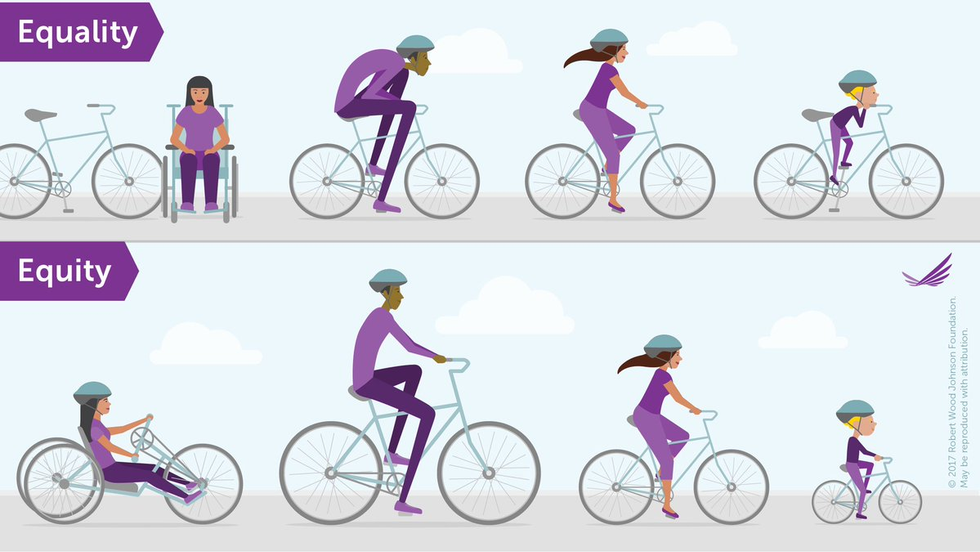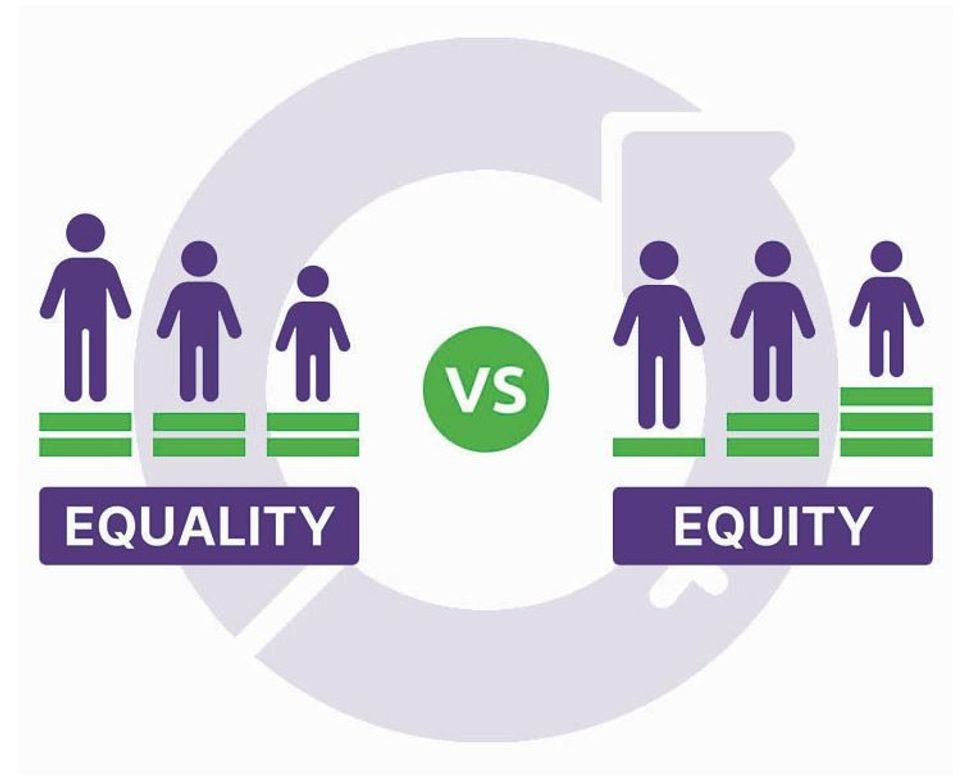For over a century women have been coming together to support and celebrate women’s essential role and contribution to family, work and culture – an order of contribution that over the decades has become increasingly fluid and influential.
Asian Trader supports International Women’s Day (IWD) for obvious human reasons, but also because the convenience channel depends for its survival on women, from independent retailers to women in wholesale, to delivery drivers.
IWD is a global day celebrating the social, economic, cultural, and political achievements of women. The day also marks a call to action for accelerating women's equality – and equity. It is important to understand the nuance.
The Big Day
IWD belongs to all groups collectively, everywhere. IWD is not country, group or organization specific.
The day showcases commitment to women's equality, launch new initiatives and action, celebrate women's achievements, raise awareness, highlight gender parity gains and more.
IWD is supported globally by industry, governments, educational institutions, community groups, professional associations, women's networks, charities and non-profit bodies, the media and more.
Everyone can make a difference within their sphere of influence by taking action to help build a more equal world. From small powerful grassroots gatherings to large-scale conference and events – International Women's Day is a big day for inspiration and change
Last year’s theme was #BreakTheBias, which stated its programme as:
- Imagine a gender equal world.
- A world free of bias, stereotypes, and discrimination.
- A world that is diverse, equitable, and inclusive.
- A world where difference is valued and celebrated.
- Together we can forge women's equality.
The day showcases commitment to women's equality, launches new initiatives and action – such as introducing the idea of equity, and layering it on top of the raised consciousness around equality in 2022 – celebrating women's achievements, raising awareness, highlighting gender parity gains and more.
IWD is supported globally by industry, governments, educational institutions, community groups, professional associations, women's networks, charities and non-profit bodies, the media and more.
Everyone can make a difference within their sphere of influence by taking action to help build a more equal world. From small powerful grassroots gatherings to large-scale conference and events – International Women's Day is a big day for inspiration and change
#EmbraceEquity
Equity is the quality of being fair and impartial, which means equity of treatment – that given to others, and received by oneself.
At the same time, there is another facet of “equity”, which means having an interest, an element of ownership – a stake in something.
On the IWC website (https://www.internationalwomensday.com/), they say that the problem is, the words equity and equality are often used interchangeably.
“So, what's the difference between equity and equality – and why is it important to understand, acknowledge and value this?"
The IWD 2023 #EmbraceEquity campaign theme seeks to get the world talking about why "equal opportunities are no longer enough" – and can in fact be exclusionary, rather than inclusive.

So it is about ensuring that people are given what they need to make them flourish, according to their individual needs and circumstances. Equality is when everybofdy gets the same thing, despite the fact that their requirements – to truly make them equal in particular ways and according to their unique needs – might be different.
As Tamara Makoni, founder of Kazuri Consulting, explains:
"Imagine that you are babysitting two children, and they are hungry. You go to the fruit bowl, and you start to pick up two apples to give them to each child. However, you remember at the last moment that one of the children is allergic to apples. Instead, you reach for one apple and one banana, and that way you're being fair. You still give one piece of fruit to each child, but you're also being equitable because you're giving each child a legitimate way of satisfying their hunger. If you had gone for two apples, the child who's allergic to the apple would on the surface have a way to satisfy their hunger, but they couldn't do that without getting ill. In this way you're being fair. You're giving each child a piece of fruit but, you're also giving them something that is in line with their individual needs so they can be successful."
Equality is making certain everybody gets a pair of shoes. Equity is making sure the shoes are the right size.
Women to the rescue!

IWD is the perfect occasion to think about how our industry is improving for women – and how much more can be done.
Last year we mentioned, for example, how JJ Foodservice had been actively hiring female drivers. “Only one per cent of HGV drivers in the UK are women – we want to help change that,” said HR manager Joanna Florczak.
Our recently-added Movers and Shakers section of Asian Trader, which tracks new hires and promotions withing the grocery sector, is replete with announcements of women who, having gained equality (of access, of respect, of opportunity) are now gaining true equity by being promoted to ever-more important and powerful positions, in organisations – not merely taking their place, but starting to change and influence the future direction of companies, industries and the economy and society as a whole. They are helped by the notion of equity, on top of equality (of education, opportunity etc) and encouraged with the right tools and resources to progress and improve circumstances for everybody.
Go to this page of the IWD website to download resources such as posters and cards, and find “Lean In” tools and resources and discover events near you. You can even download Zoom backgrounds!
Why not try dressing your store to celebrate IWD 2023 on March 8? Purple, green and white are the colors of IWD, originating from the suffragette-era Women's Social and Political Union (WSPU) in the UK, which first began in Manchester in 1903: purple signifies justice and dignity. Green is for hope and white represents purity (a bit controversial these days!).
(SUBHEAD): Woman power in the marketplace
As we pointed out in 2022, IWD is also a great opportunity to promote products aimed at women – not just “women’s products” but items that take their place on a universal platform of goods while expressing an ethical foundation that is in tune with the ideals of the day.
It’s also important to properly acknowledge the role of women’s innovation and success in the brands and products that we recognise today in every shopping basket. Häagen-Dazs is doing just that by celebrating the previously unheralded fact that it was Rose Mattus, the wife of ice-cream maker Reuben Mattus, who made the company a success.
Born to Polish-Jewish parents in Manchester (also the birthplace of IWD!), Rose (Vesel) Mattus was the business brain and marketing pioneer behind making Häagen-Dazs famous, although until now she has remained relatively unsung compared to her husband.
So, to honour Rose’s contribution, Häagen-Dazs is launching a global rebrand, with "Rose Mättus Woman Founded Business Established 1960" to accompany the Häagen-Dazs logo across multiple touch points in its global Shops and on digital and social platforms.
“In 2021, we launched our ‘Women Who Don't Hold Back’ campaign, shining a light on female trailblazers around the globe, but now it's time to recognise our own remarkable female founder,” said Clare. “Reuben Mattus made our flavours but Rose Mattus made us famous! By telling Rose’s untold story as a marketing pioneer who built our brand as a true partner to her inventor husband and helped create our Shops business with her daughter Doris, we hope to use this year’s IWD celebration as a beacon for #EmbraceEquity."
International Women’s Day 2023 marks the launch of ‘The Rose Project’, an initiative honouring Rose’s legacy, which pledges $100,000 in bursaries to support remarkable women around the world who Don’t Hold Back just like Rose herself. People across the globe will have the opportunity to nominate unsung women (or even themselves) who deserve recognition for their trailblazing efforts, achievements and societal contributions.
From these nominations, a shortlist of 50 ‘WOMEN WHO DON’T HOLD BACK’ will be selected for their commendable efforts and put forward for the opportunity to win one of five monetary grants of $20,000 each. The bursary fund will enable these five Rose Project Honourees to continue their exceptional work and unleash their potential or even give to a cause they’re passionate about.
Nominations for The Rose Project are now open and can be submitted via https://iwd.haagen-dazs.global/.








